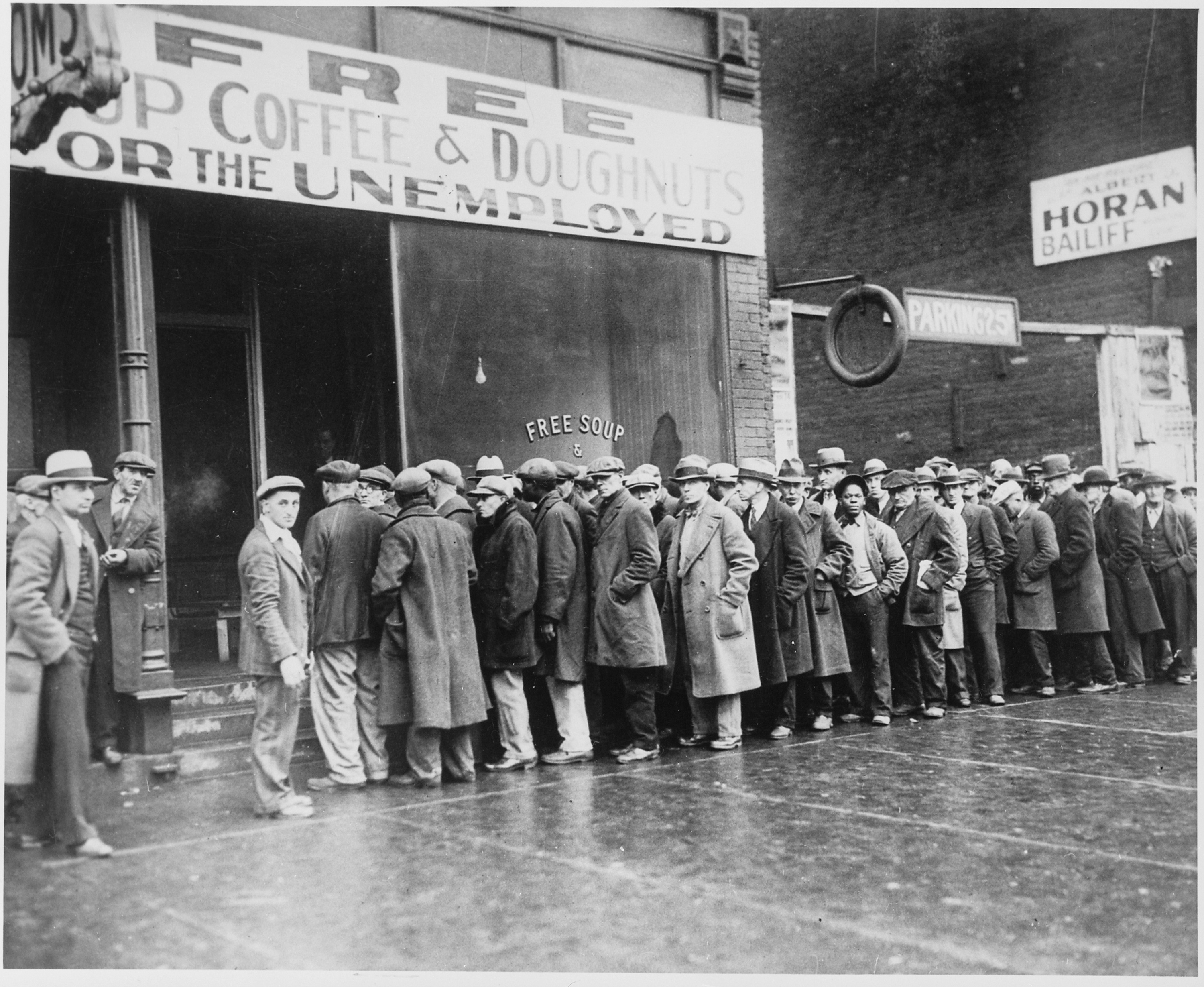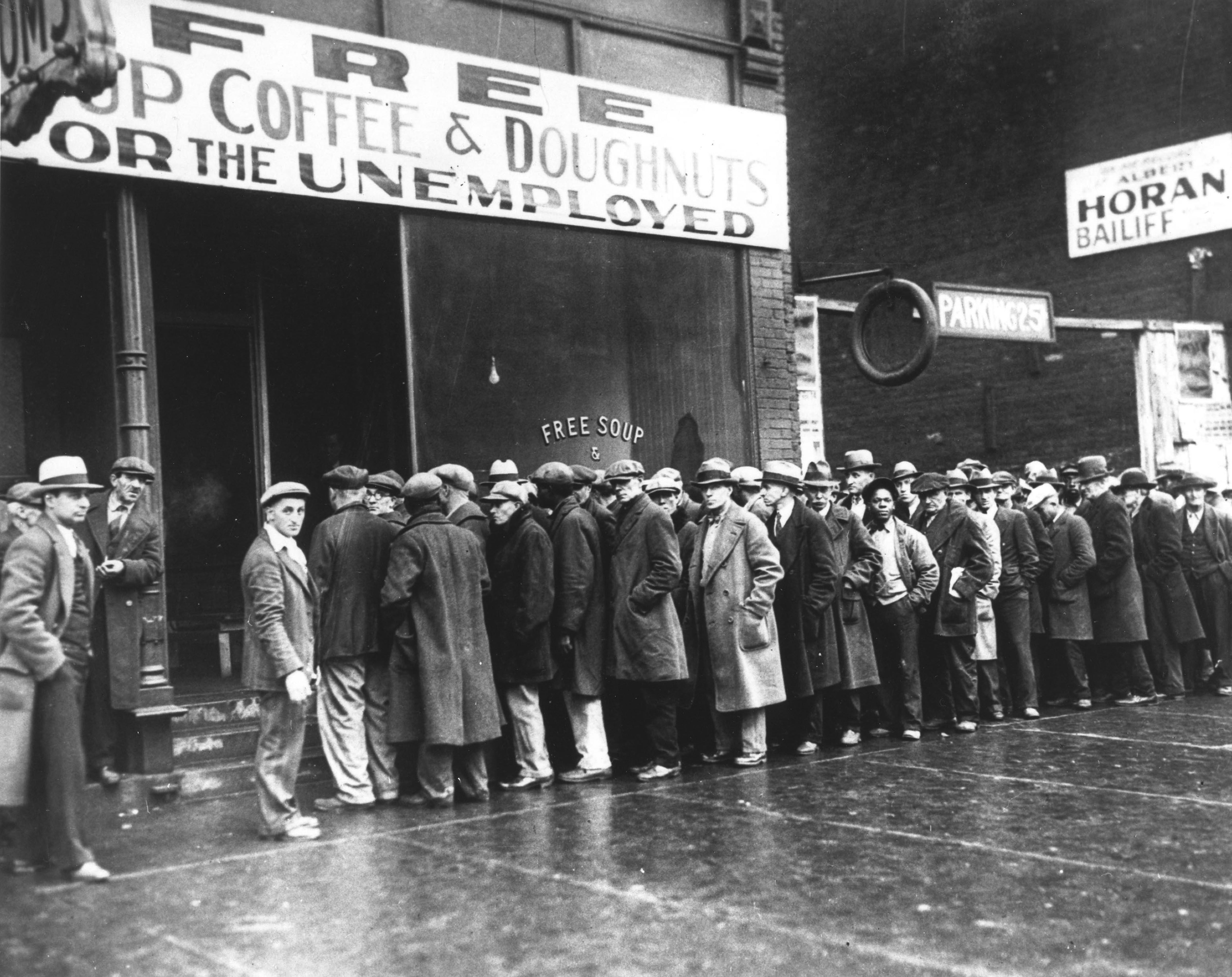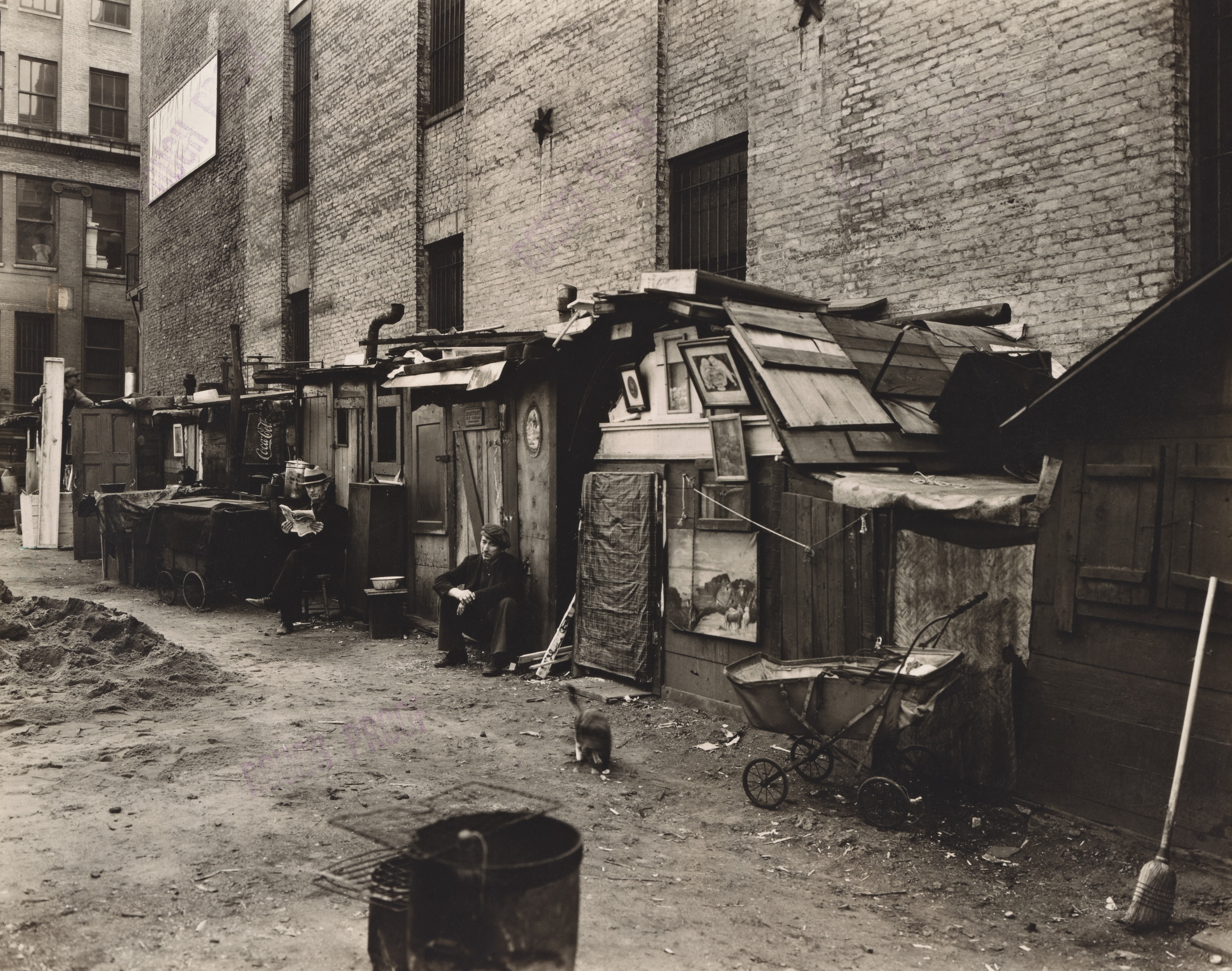Soup Kitchen Great Depression Definition

Soup Kitchens in the Great Depression Fact 16.
Soup kitchen great depression definition. Soup kitchens became popular and for many struggling people provided their only food source for the day. Few institutions define the Great Depression as much as the soup kitchen. The Great Depression was the worst economic downturn in world history.
Discover what you know about soup kitchens during this period by. These charities gave out free food. Stock market crashed and started Great Depression.
Although it originated in the United States the Great Depression caused drastic declines in output. The need for soup kitchens was felt even more keenly when the tailspin in the economy worsened in 1932 and 12 million Americans about 25 percent of the normal labor force were out of work. Great Depression worldwide economic downturn that began in 1929 and lasted until about 1939It was the longest and most severe depression ever experienced by the industrialized Western world sparking fundamental changes in economic institutions macroeconomic policy and economic theory.
A breadline refers to the line of people waiting outside a charity. The quality of the food served depended on various factors such as how big the kitchen was the type of food that had been donated and how many people there were to feed. Breadlines were lines of people waiting to receive food provided by charitable organizations.
The kitchen employed a few people but fed many more. Most centers only opened once a day. In fact preceding the passage of the Social Security Act soup kitchens like the one Al Capone founded provided the only meals that some unemployed Americans had.
Soup kitchens sometimes obtain food from a food bank for free or at a low price because they are. The Great Depression was one of the most challenging times in US. A breadline refers to the line of people waiting outside a charity.








/soup-58a079f03df78c4758aa7c48.jpg)

/GettyImages-515174518-5d660c19fb8e45db8ab59dcc119f7c4c.jpg)

:max_bytes(150000):strip_icc()/GettyImages-2669031-203d4d5f212a4a809dcf66344b861b6b.jpg)
:max_bytes(150000):strip_icc()/GettyImages-804476558-e50068264f0143a0ba01de8eb7074cc6.jpg)





